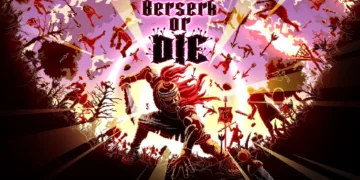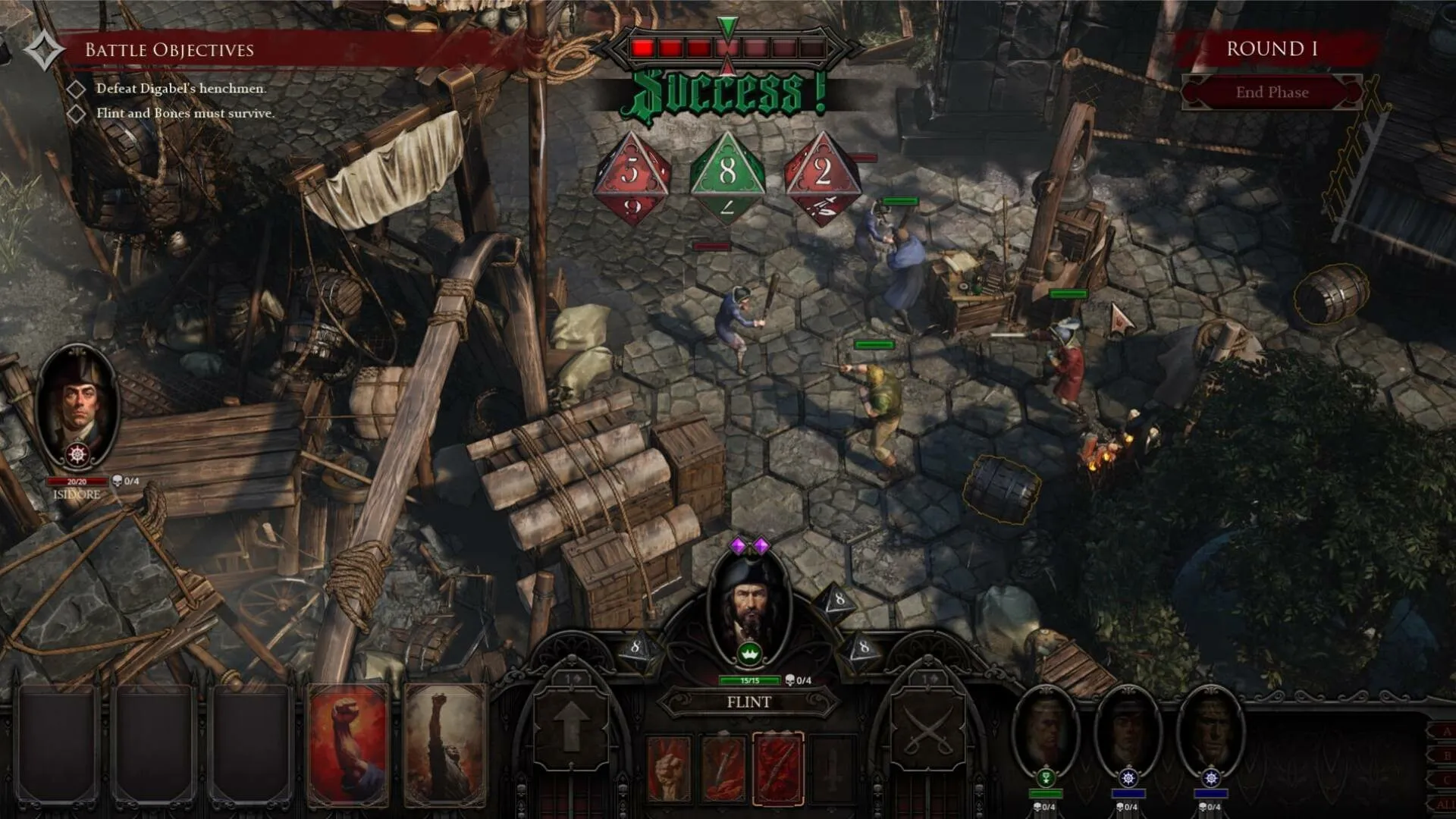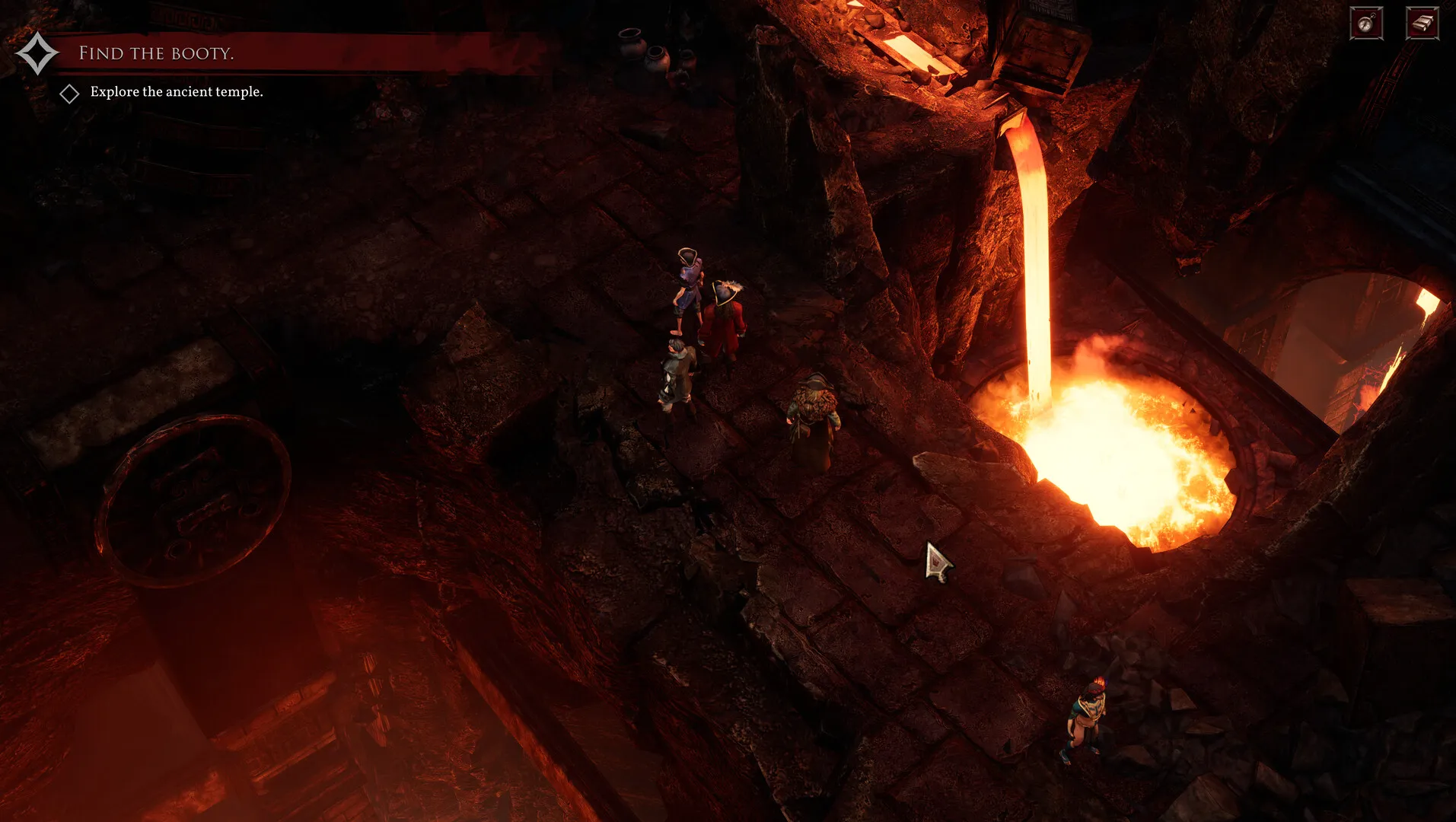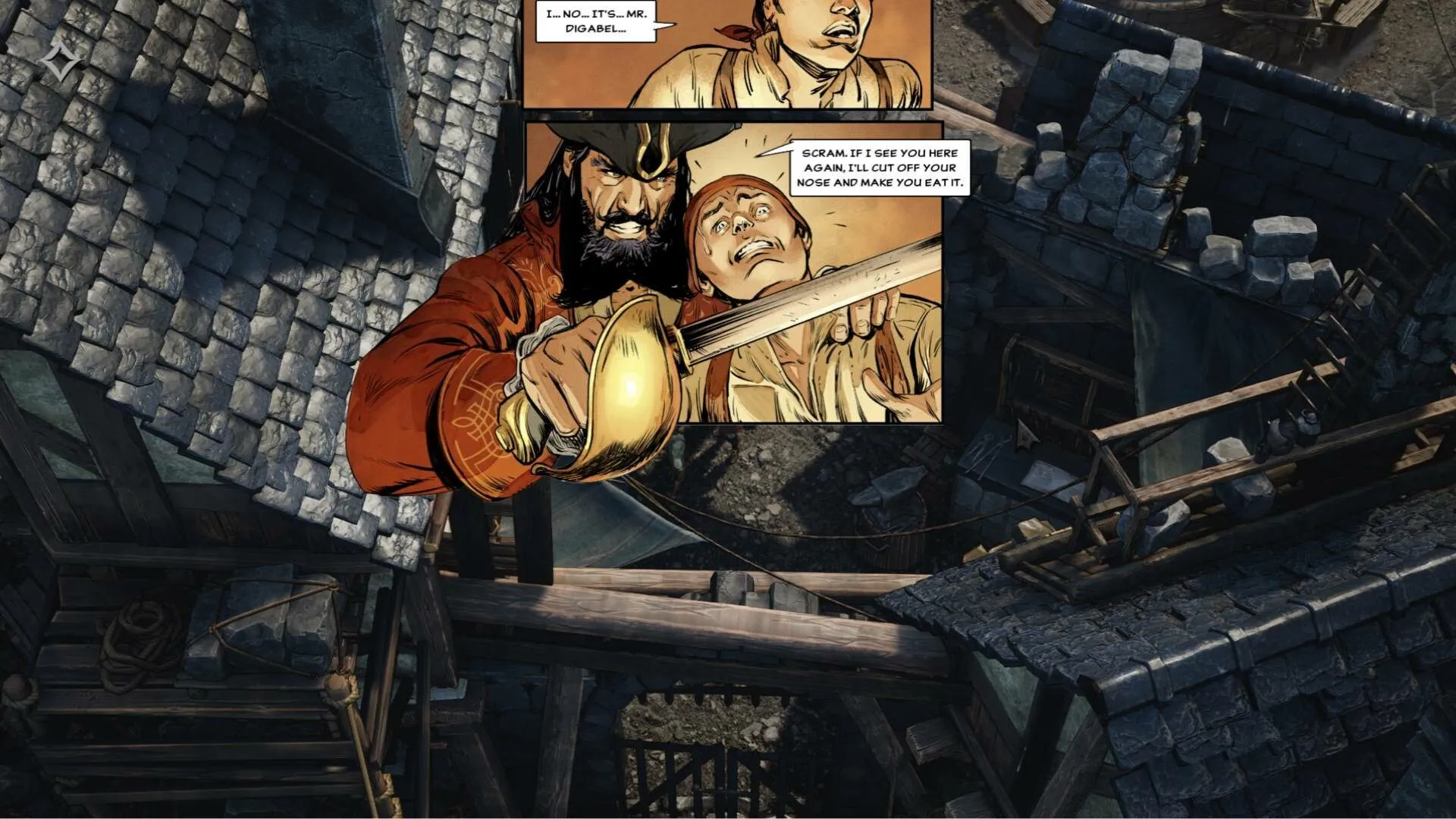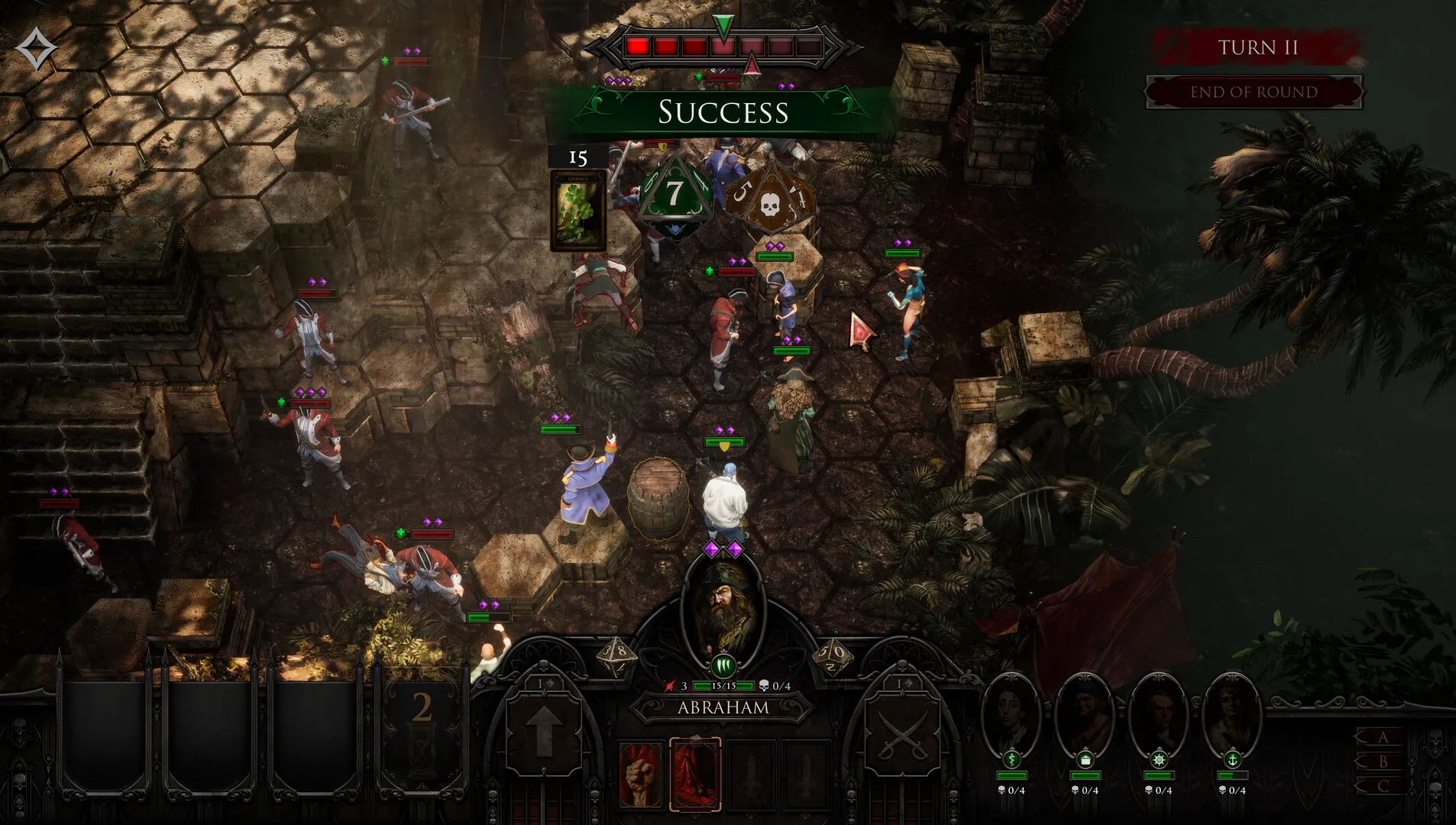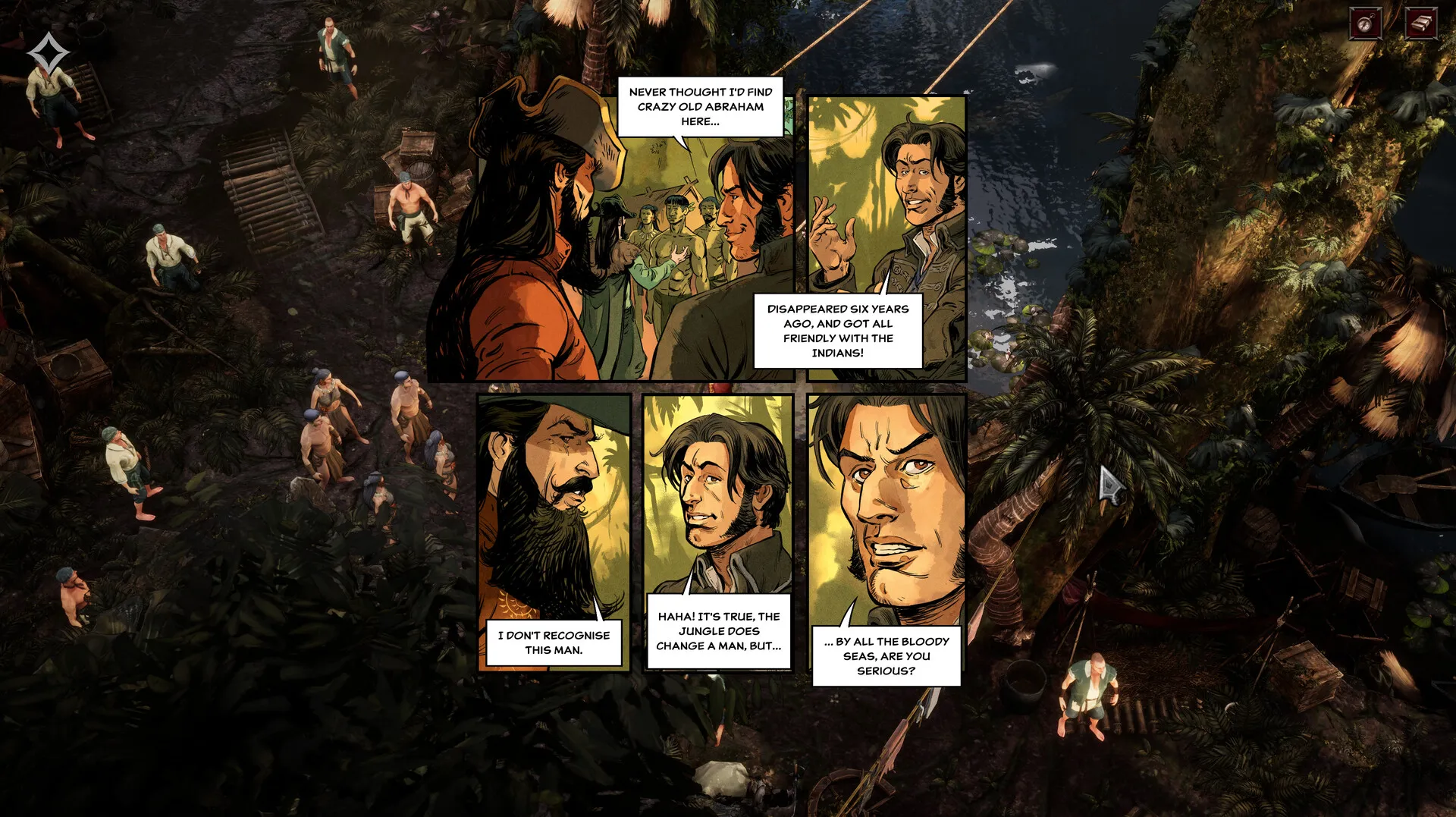During the Golden Age of Piracy, Flint: Treasure of Oblivion is about Captain James Flint and his friend Billy Bones as they search for legendary treasure. Their capture sets the scene for a classic adventure full of betrayal and cunning, where the narrative starts. Although it draws from rich pirate lore, the execution is frequently generic and lacks the depth required to make it memorable.
The game tells stories like a comic book, with bright panels and speech boxes that make the story more interesting. This approach successfully brings the narrative to life, reminiscent of Comix Zone. However, players may find it difficult to fully understand the context of encounters due to the rapid-fire dialogue, which can detract from character depth.
Captain Flint is a charming anti-hero representing how pirates aren’t always sure what’s right or wrong. In contrast, supporting characters are often presented quickly and don’t have enough backstory to develop. Particularly when compared to games like The Witcher 3, where character depth is a big plus, this leads to forgettable characters that lower the emotional stakes.
Strategic Skirmishes: Analyzing the Combat Mechanics of Flint
Turn-based tactical combat is used in Flint: Treasure of Oblivion, similar to the strategic depth level found in games like Baldur’s Gate 3. Players move figures around a grid of hexagons using action points to move or do something during their turn.
Each character has two action points at the start of the game that can be used for various actions, such as moving, attacking, or using objects. Because players must think carefully about their moves to be most effective in battle, this structure supports careful planning and positioning.
The unique thing about the combat system is that it combines card and dice mechanics. Players collect skill and item cards that strengthen their characters and add more strategy to battles. Each card has its benefits, like extra actions or buffs, and plays a major role in determining how combat plays out. However, The uncertainty introduced by the reliance on random number generation (RNG) through dice rolls can annoy players. Attacks are decided by rolling dice, but the obvious randomness can make skilled play seem less important, leaving players feeling at the hands of luck rather than tactical choices.
In Flint, combat tactics are heavily influenced by the terrain. Players can use The environment creatively, like pushing enemies or using height to their tactical benefit. For example, moving barrels around to knock enemies off balance or climbing higher can make a fight very different. Focusing on how the environment affects combat makes it more tactical and forces players to think outside the box. In contrast to more linear combat systems found in titles like Fire Emblem, Flint rewards players who use their surroundings creatively, enhancing the strategic experience and adding depth to the gameplay.
Charting New Waters: The Depths of Exploration and World Design in Flint
Flint: Treasure of Oblivion has a lot of exploration, which helps players get into the pirate-themed world. The main way to move is with the mouse cursor, which leads Captain Flint to different places. The environments are small and linear, leading players to frequently just click around until they find points of interest, limiting the exploration process.
Players are not encouraged to find hidden treasures or secrets outside the main narrative line, which can detract from the sense of adventure usually associated with pirate stories. The overall experience lacks the rich, exploratory depth in games like The Legend of Zelda: Breath of the Wild, where players are rewarded for going off the beaten road. However, there are moments of discovery, such as finding chests hidden in corners.
The game’s world design reinforces how linear it is by showing a series of places that are linked together instead of a big, open world. It’s been carefully thought out that each area, from muddy streets to rich tropical islands, shows the rough and colorful side of the pirate era. However, the fixed camera angle during exploration can make it harder for players to get into the game and fully enjoy the environment.
There is a strong sense of place and a good artistic style, but that doesn’t make up for the lack of depth and involvement. Flint feels more constrained, offering a series of scripted encounters rather than a living world full of opportunities for discovery. Unexploration titles like Assassin’s Creed IV: Black Flag successfully combines exploration and narrative through expansive environments. Ultimately, this makes players want a more dynamic exploration experience that fits the ambitious pirate theme of the game.
A Pirate’s Palette: Visual Splendor in Flint: Treasure of Oblivion
The stunning visuals in Flint: Treasure of Oblivion are made possible by Unreal Engine 5. The game’s art style paints a vivid but realistic picture of the pirate era, capturing the spirit of danger and adventure. Detail-rich character designs with expressive features that show personality are used.
This is especially true for Captain Flint, whose charming bad-guy image is clear in every frame. From busy coastal towns to scary islands, the environments are carefully designed, offering a sense of place that draws players into the narrative. Although the graphics are great, they don’t always have the depth and intricate textures that you’d find in higher-budget titles like Red Dead Redemption 2, which sets a high standard for environmentalism.
Animation is a very important part of making the world come to life. Character animations are smooth during combat, making attacks and movements lively and interesting. A satisfying dice roll shows how the dice work, adding excitement to the tactical battles. However, the animations can feel stiff during exploration, especially when moving around the environment.
With the fixed camera angles and occasional clipping problems, players may find it hard to get into the game. All these problems notwithstanding, the general visual quality improves the player experience and pulls them into the world of piracy. Although it occasionally falls short of the flawless presentation seen in more polished titles in the genre, like Divinity: Original Sin 2, the combination of compelling visuals and engaging animations significantly adds to the game’s atmosphere.
Melodies of Adventure: The Impact of Sound and Music in Flint
The music in Flint: Treasure of Oblivion is a big part of setting the mood for the game. The music well evokes the spirit of adventure and the high seas with its mix of stirring melodies and nautical themes. The music makes the experience more real, pulling players into the world of piracy and mystery.
The music is usually well-written and appropriate, but it can get boring after playing because it lacks the dynamic range found in more expansive soundtracks like Assassin’s Creed IV: Black Flag, which does a great job of adapting to different in-game scenarios.
Most of the time, during combat and exploration, sound effects are an important part of Flint. Noises from swords clashing, gunfire, and other things in the environment add to the atmosphere. However, there are big differences in the quality of the sound design. While some effects, like the dice rolls during combat, are satisfying and significant, others may feel uninspired or lack depth.
For instance, the sounds in the environment might not always match what you see, leading to a disconnected experience. The game’s total experience would be improved by increasing the fidelity and variety of sound effects, allowing it to compete more successfully with genre standards like The Witcher 3, where sound design is an important part of the gameplay.
Navigating Rough Waters: Assessing Technical Performance and Bugs in Flint
A range of performance problems can detract from the overall experience in Flint: Treasure of Oblivion. The game, made for mid- to high-end computers, has trouble keeping frame rates stable, especially during intense combat scenes. The smoothness of gameplay can be hampered by lag and graphical stuttering for players with less powerful computers.
Many accounts of bugs and crashes have also occurred, especially when moving between areas or during scripted events. These technical problems can lead to annoying breaks, reminiscent of the early access phase of titles like Cyberpunk 2077, where performance problems ruined the first few hours of fun.
The save method in Flint makes these problems even worse. The reliance on autosave can be problematic, even though there are choices for manual saving. Players have noticed that autosaves don’t always happen, leading to the possibility of losing progress if the game stops or fails unexpectedly.
This design choice can make things tense, but not in a good way. Instead of enhancing the sense of adventure, it often makes people worried about losing things they’ve worked hard for. In contrast, games like Horizon Zero Dawn have better autosave systems that make progressing through the game easier and less stressful. The save system in Flint could be greatly improved, allowing for a more pleasurable and less stressful game experience.
The Treasure Hunt: Evaluating the Overall Gameplay Experience in Flint
Players can expect a wide range of feelings from Flint: Treasure of Oblivion’s varied gameplay experience. The strategic use of cards and dice, along with the turn-based combat system, makes for intense moments of play. Reminiscent of tactical classics like XCOM 2, players frequently find themselves absorbed in developing strategies to outmaneuver foes. The balance of strategy and randomness, on the other hand, can lead to frustration.
The reliance on RNG, especially during crucial moments of combat, can change the result without warning, undermining the careful planning that players put into their strategy. This randomness can add to the fun but also feel like punishment, especially when a bad dice roll ruins a well-thought-out plan.
Flint’s strong points are its colorful graphics and fun combat system, which nicely capture the spirit of adventure and piracy. However, the game has some major flaws, especially regarding technical performance and character growth. The gameplay mechanics often overshadow the story, so players looking for a rich narrative with deep character arcs may find themselves disappointed.
Potential players should think about their preferences: if they like tactical combat, have a thing for randomness, and can look past some technical flaws, Flint might be a good game for them. Conversely, those looking for a cohesive narrative or a polished performance might find more satisfaction in more refined titles within the genre, like Divinity: Original Sin 2 or Fire Emblem: Three Houses, which combine storytelling and gameplay more smoothly.
The Review
Flint: Treasure of Oblivion
Although Flint: Treasure of Oblivion has beautiful graphics and a fun tactical combat experience, it falls short due to performance problems and a lack of depth in the story. The balance between strategy and randomness can be discouraging and undermine the tactical planning that players seek. The technical issues and erratic narrative eventually detract from the overall experience, even though it has its enjoyable moments.
PROS
- Engaging tactical combat mechanics.
- Visually striking art style powered by Unreal Engine 5.
CONS
- Performance issues and bugs detract from gameplay.
- Lack of depth in character development and narrative.
- Frustrating balance between strategy and randomness.







































